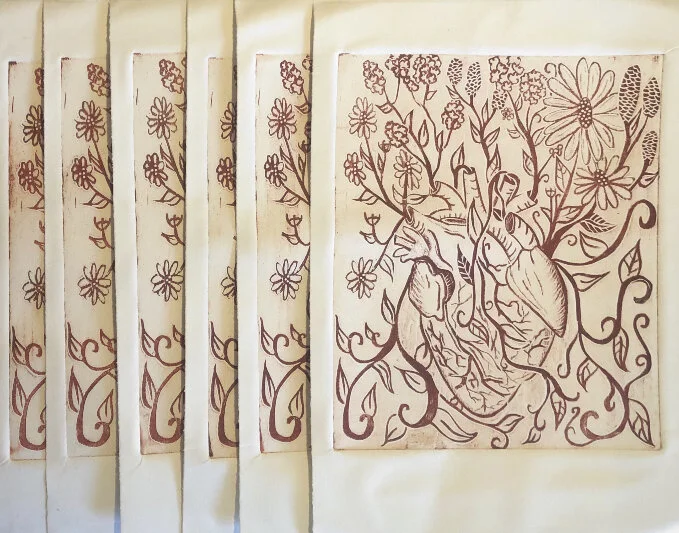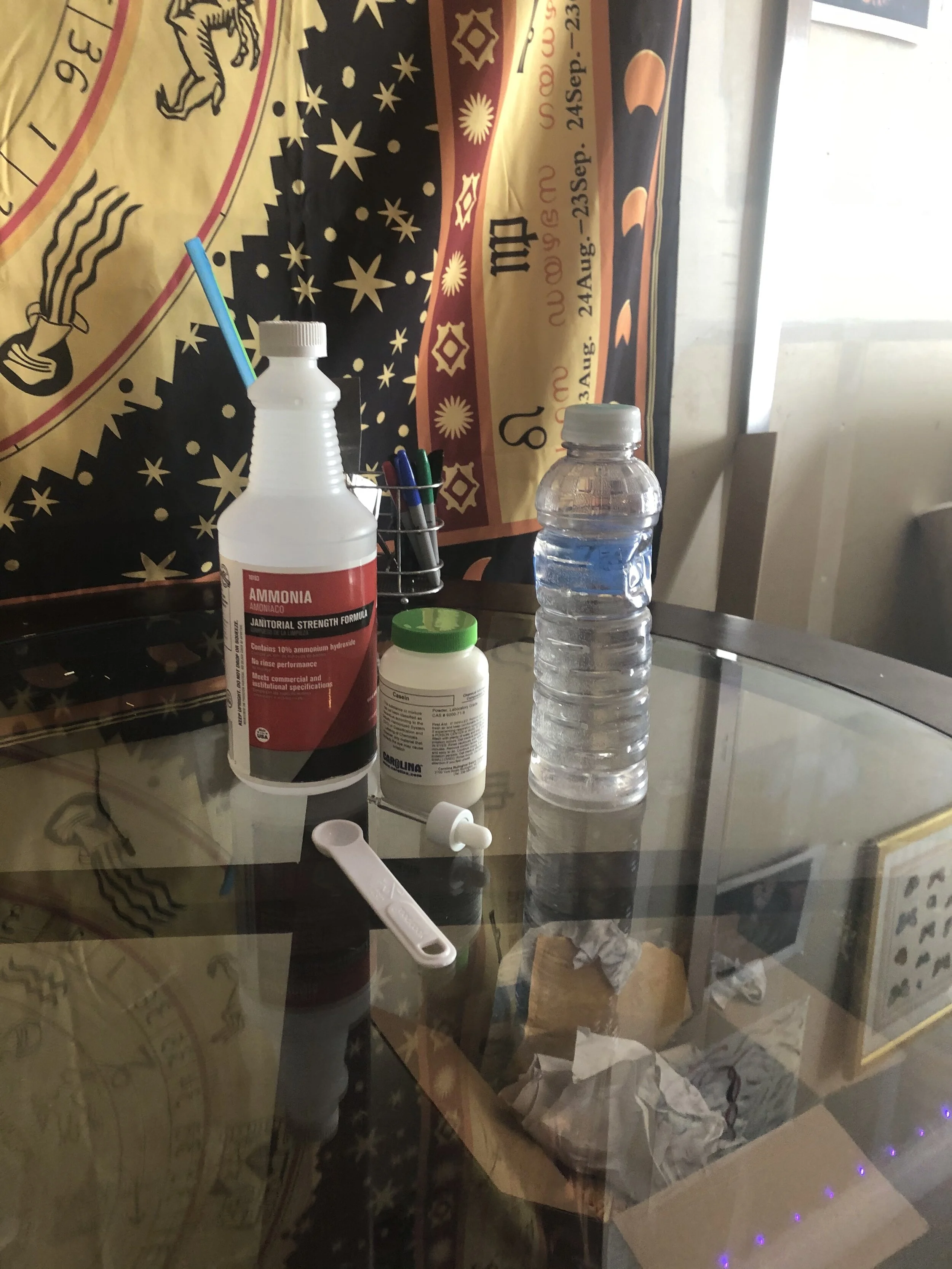Mokulitho
Heart Attack
15 x 22
Spring 2020
Inspired by my heartbeat that I recently discovered. I came home from a run and as I laid on the ground all I could feel was my heart beat and the extent that it reached. I didn’t think about the loss of my father and the weight of the state of the world. All I could feel and hear was my heartbeat.
Santa Cruz: The Trees Speak
22 x 30
Spring 2020
When I ran out of inspiration and motivation I was encouraged to take a hike and listen to nature. Reconnect with the earth and myself during a time when I was forced to connect to the world through this little box. Not only have trees been known to communicate to each other through their root systems, but when you’re still and listen they also speak to you.
Fish n Water
15 x 22
Mokulitho, and watercolor
Summer 2019
I was fortunate enough to learn this method at the university it was developed, Tama University. There I created this piece reflecting on my desire to go with the flow and thinking about how I was an ocean away from the people I call home.
Thinking Of You
22 x 30
Spring 2020
This was my first attempt at Mokulitho from the comfort of my garage. I wanted to pay tribute to the UCSC print studio that has taught me so much and has brought me to people and mediums that I love.
About the Method
I was fortunate enough to have visited Tama University in Tokyo, Japan summer 2019, where this method was developed, and learn Moku Hanga and Mokulitho. It was my introduction to Lithography which I took the following quarter in the Fall. This method works with the understanding that water and oil do not mix, therefore if you draw on a water resistant surface with grease and seal it, you can print those lines by inking them with oil based ink.
I started exploring Mokulitho as a means to adjust to printmaking in a pandemic. I remembered learning the method and seeing how minimal it was (compared to other print methods), it seemed perfect to do at home.
The Process
Prepping Your Block
1) Get a piece of plywood that is about a .25-.5 an inch thick and sand it down so the surface is smooth
2) Make the coating for the block, apply it, let it dry, and repeat 5 times (you can let it dry in the sun to speed up the process)
Coating Materials
2.5 cups of water
2 tsp of Casein
20 drops of ammonia (can be purchased at hardware stores)
Drawing on your Block
3) Once you’re done drawing, coat your block with a layer of gum arabic and let it dry for 24 hours
best to use a gum sponge to apply an even layer
You can draw on your block with lithography crayons, tonality is difficult to achieve so try to draw darker thicker lines.
Sakura Markers (oil based)- mini streak
Mokulitho allows you to combine woodcut marks with lithography lines/style
Printing your Block
4) Wet your block with a spary bottle and use a rag to remove the layer of gum arabic
5) Once the gum is off you can start inking up your block with Oil based ink (Rubber base ink works the best!)
Keep your block relatively moist, if your block is dry it scums, if your block is too wet it makes your ink clump!
6) Put newsprint on the ground, place your block on top- facing up, and drop your paper on the block, put another piece of newsprint on the top
works best if paper is soaked
7) Mokulitho allows you to print with your legs! Begin to step on your block with the heel of your foot. Make sure to get the corners!
8)Peak at your print, if it looks like its had enough pressure PULL YOUR PRINT!
FUN TIP: You can watercolor directly on your block after it’s inked to apply color!







